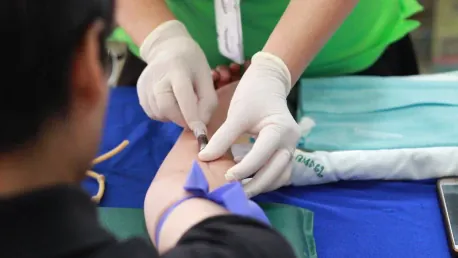The recent announcement by Russia regarding the development of a groundbreaking mRNA cancer vaccine represents a significant milestone in the global fight against cancer. Scheduled for free distribution in early 2025, this innovative vaccine has captured worldwide attention due to its potential to transform cancer treatment. Unlike traditional prevention-focused vaccines, this new solution aims to treat cancer by effectively targeting and attacking cancer cells, providing new hope to countless patients worldwide.
Russia’s Commitment to Free Distribution
Making Advanced Medical Treatments Accessible
Russia’s pledge to distribute the vaccine free of charge underscores its commitment to making advanced medical treatments accessible to all. This initiative signifies a monumental step toward equitable healthcare solutions, ensuring that even the most advanced treatments are available to those in need, regardless of their financial background. Moreover, while the specific cancer types targeted by this vaccine have not yet been disclosed, experts anticipate that it could address some of the most challenging and aggressive forms of the disease.
This ambitious rollout aligns with the vision expressed by Russian President Vladimir Putin, who previously praised the progress of Russian scientists in developing next-generation cancer vaccines and immunomodulatory drugs. The potential impact of this vaccine is immense, as pre-clinical trials have shown promising results, such as suppressing tumor growth and preventing metastases, indicating a profound advancement in the efficacy of cancer treatments.
Breakthrough Feasibility and Expectations
Andrey Kaprin, the General Director of the Radiology Medical Research Centre under the Russian Ministry of Health, emphasized the groundbreaking nature of this development. The vaccine’s potential to curb tumor growth and inhibit metastasis could revolutionize cancer treatment strategies, making it a beacon of hope for patients who have faced limited options in the past. The commitment to free distribution also highlights Russia’s dedication to public health and its willingness to contribute significantly to global health advancements.
The announcement has sparked intense interest and speculation about the specific mechanisms of this mRNA cancer vaccine and its possible applications. As the world watches closely, Russia’s progress could lead to a new era of cancer therapies, where effective treatment options become more accessible and widespread. The potential economic and social benefits of such a breakthrough cannot be understated, as countless lives could be improved and prolonged through this advanced medical intervention.
Role of Artificial Intelligence in Accelerating Development
Revolutionary AI-Powered Processes
The role of artificial intelligence (AI) has been pivotal in accelerating the development of this innovative treatment. Alexander Gintsburg, Director of the Gamaleya National Research Center for Epidemiology and Microbiology, highlighted the significance of AI, particularly artificial neural networks, in expediting the computational processes required to create personalized cancer vaccines. Traditional methods, which involved lengthy and complex calculations, can now be accomplished in under an hour due to AI-powered algorithms. This technological advancement has not only increased the speed but also the precision of vaccine development, thereby enhancing its efficacy.
The Ivannikov Institute’s expertise in neural network computing has also been instrumental in this effort. The collaborative work between research centers in Russia demonstrates the potential of combining advanced AI technologies with medical research. This synergy has resulted in a more efficient and targeted approach to cancer treatment, enabling the creation of a vaccine that can adapt to the unique characteristics of each patient’s cancer cells. Such personalization marks a significant leap in the field of oncology, as it aims to optimize treatment outcomes for individual patients.
Global Efforts and Collaborative Innovations
The strides made by Russia are reflective of broader international efforts to combat cancer through advanced medical technologies. For instance, the UK is partnering with BioNTech on personalized cancer therapies, showcasing a global commitment to innovative cancer treatments. Moreover, companies like Moderna and Merck & Co. are working on experimental cancer vaccines that have already demonstrated reductions in melanoma recurrence rates. These collaborative innovations underscore the worldwide dedication to finding new and effective ways to treat cancer.
The combination of AI and cutting-edge medical research heralds a promising future for cancer treatment. As countries and institutions continue to collaborate and share knowledge, the collective progress in this field will likely accelerate. The global scientific community’s shared goal of overcoming cancer drives these advancements, ensuring that innovations are not confined by borders but benefit humanity as a whole. Thus, the future of cancer treatment appears increasingly hopeful, thanks to the integration of AI and the relentless pursuit of medical excellence.
Conclusion
Russia’s announcement about the development of a pioneering mRNA cancer vaccine marks a major breakthrough in the worldwide battle against cancer. This innovative vaccine, set for free public distribution in early 2025, has garnered global attention for its potential to revolutionize cancer treatment. Unlike traditional vaccines, which are designed to prevent diseases, this new mRNA vaccine is distinct because it treats cancer directly.
By targeting and attacking cancer cells specifically, this vaccine offers renewed hope for countless patients around the world. The innovative approach of using mRNA technology to treat cancer rather than merely preventing it represents a significant shift in medical strategy. Such developments could potentially reduce the need for more invasive treatments like surgery and chemotherapy, improving the quality of life for many patients. As we edge closer to 2025, the anticipation builds, emphasizing the global importance of this medical advancement and its profound implications for how cancer is treated in the future.









